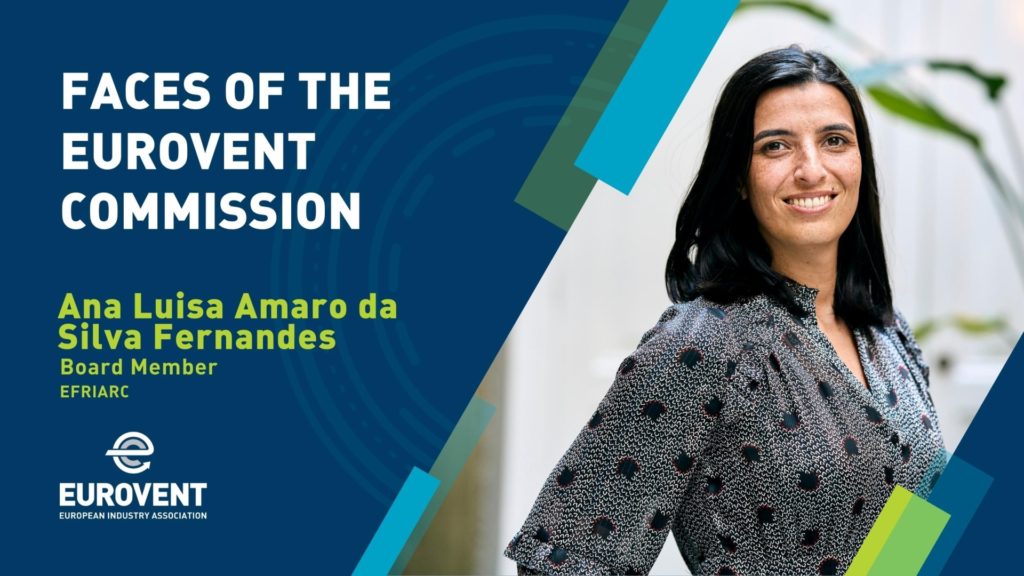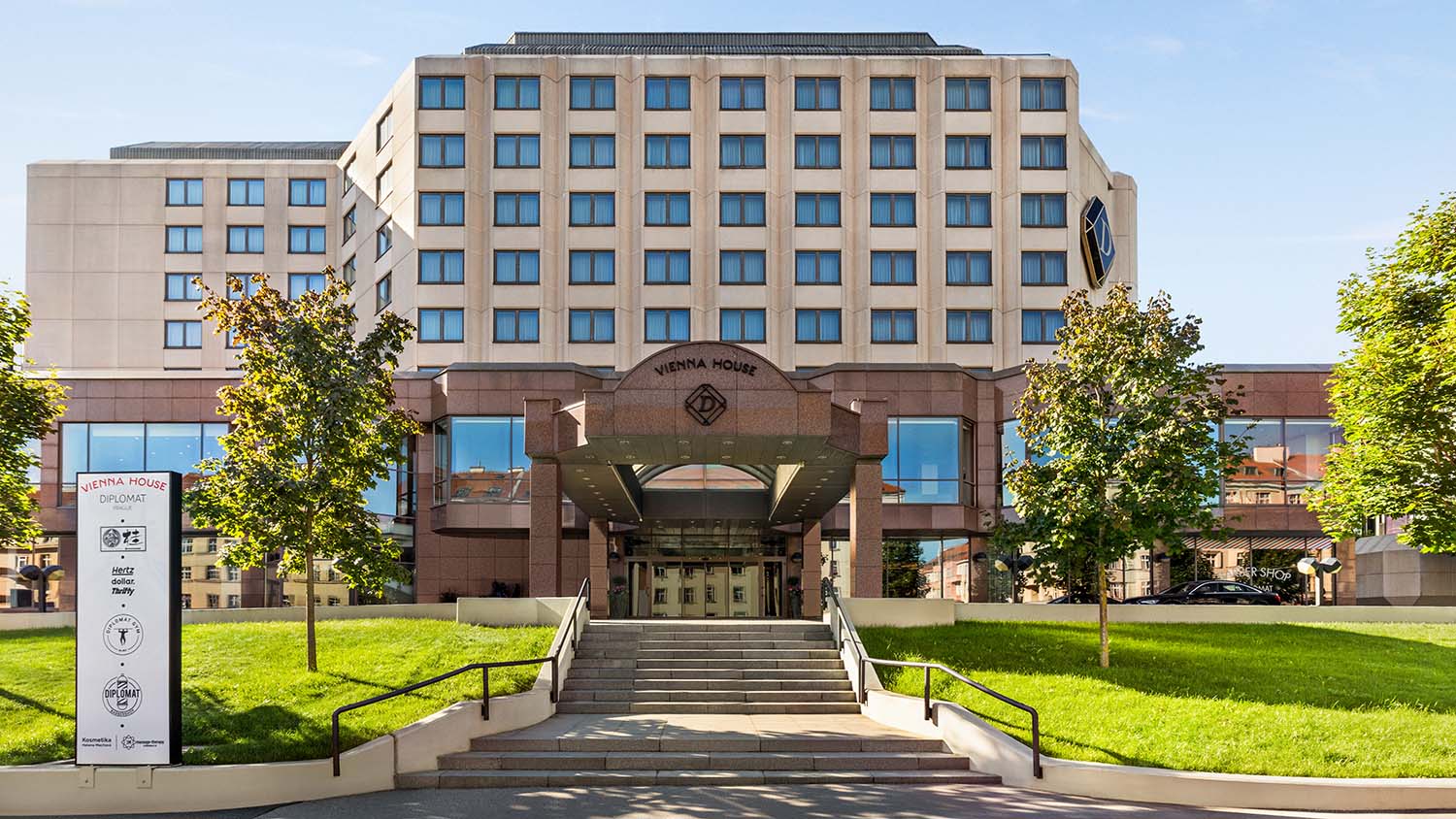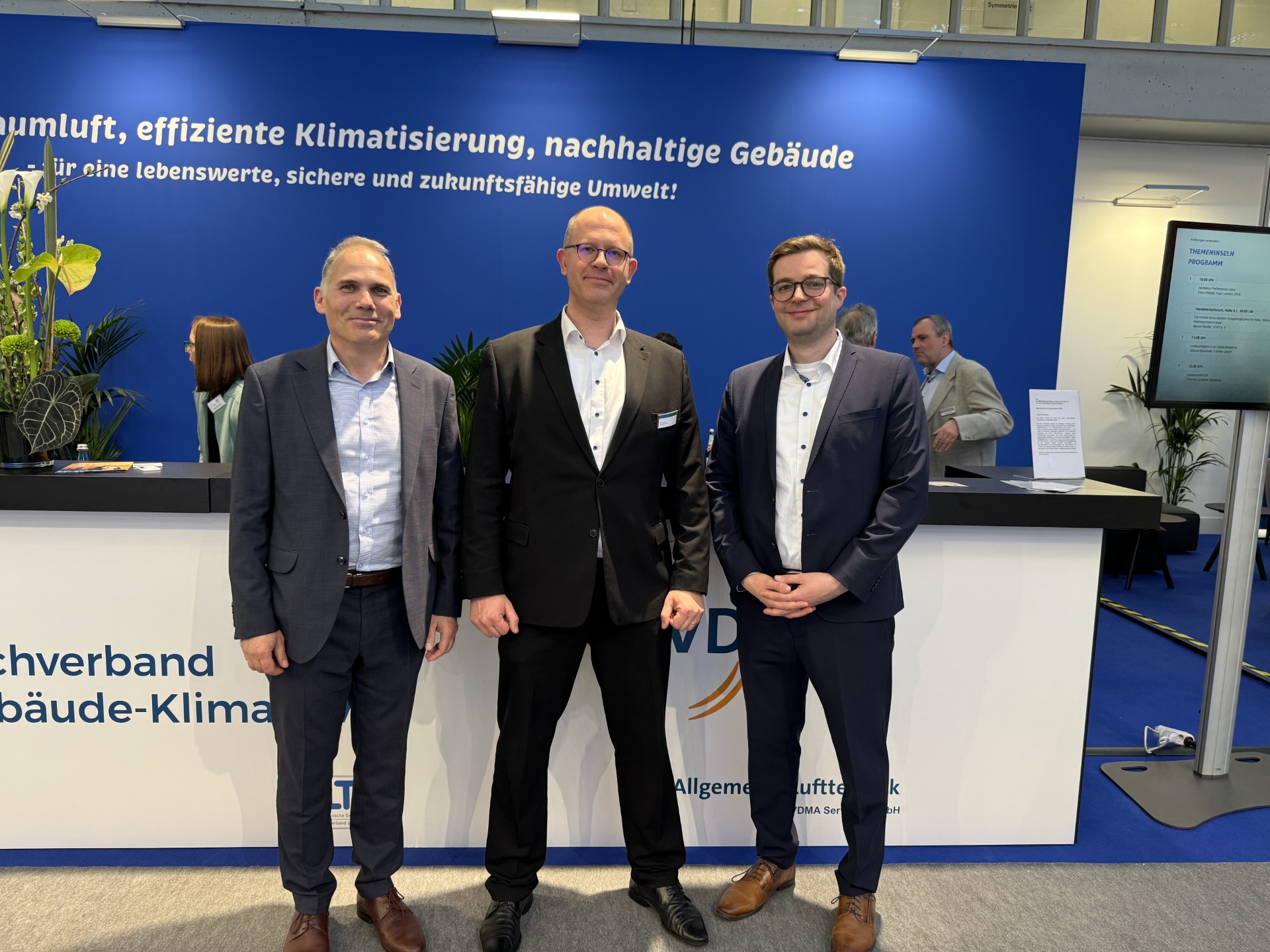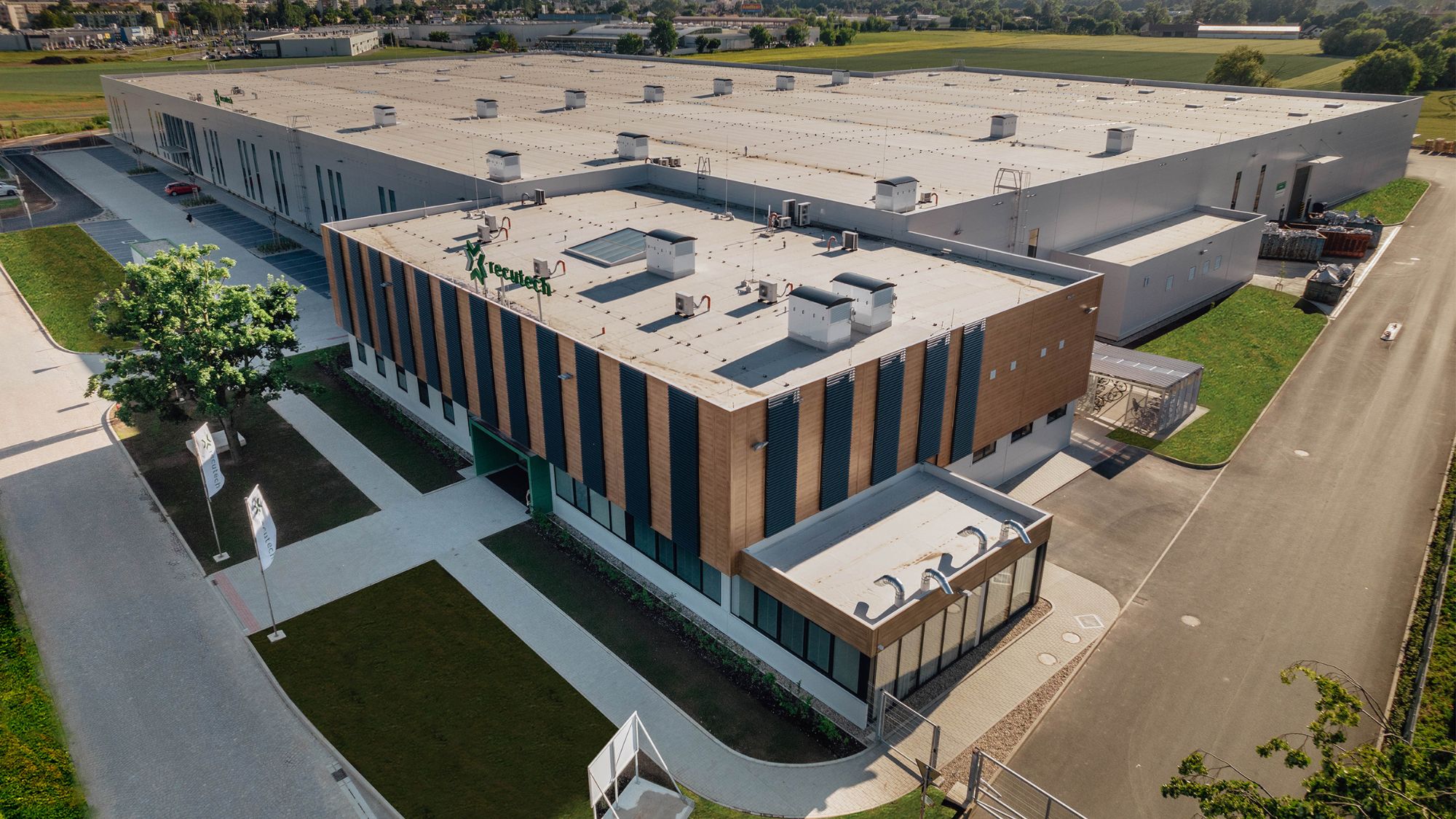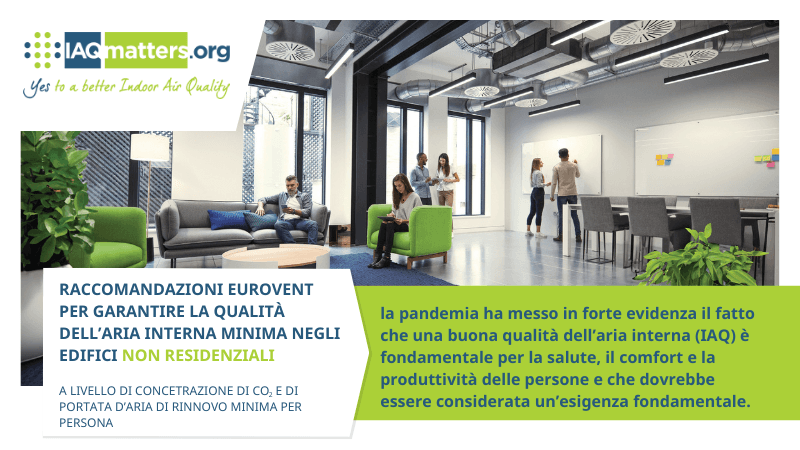The Eurovent Commission participant Ana Luisa Amaro da Silva Fernandes, Board Member of EFRIARC, has extensive experience in consultancy for maintenance and operations of buildings. As part of our ‘Faces of the Eurovent Commission’ series, she briefed us about the status of F-Gas situation in Portugal.
Ana Luisa Amaro da Silva Fernandes has a Master’s degree in mechanical engineering and has been working as a consultant for maintenance and operations of buildings for the past 12 years in the aero-space, healthcare and education sectors. She has a particular interest in Indoor Air Quality across the full picture, from system design and installation to operation and maintenance. Eurovent interviewed her to shed light on her role at EFRIARC and the status of the F-Gas topic in Portugal.
What is your role in EFRIRAC?
I entered EFRIARC (the Portuguese Association of Refrigerating and Air-Conditioning Engineers) in 2018, in order to have a more active role in promoting the development of HVAC technology, disseminating knowledge and best practices, and representing the interests of the profession to government agencies and other organisations. I have been a Board Member since 2021, and since then I became the association’s representative at Eurovent.
As you are familiar with the F-Gas Regulation, what is the overall opinion on the Regulation in Portugal? Are Portuguese manufacturers in agreement with the phasedown and additional bans, and what are the next possible steps?
Most Portuguese stakeholders are committed to reducing the impact of F-Gases on the environment and our national authorities tend to support the current review of the F-Gas Regulation. However, regarding the latest revision, several associations have expressed concerns about the costs and practical challenges of transitioning to alternative technologies and the potential impact on jobs and economic competitiveness that the phasedown calendar and additional bans will bring.
In the past years, some initiatives have helped to mitigate the transition costs, namely financial incentives and tax benefits for replacing equipment or using alternatives to F-Gas. The Portuguese Environment Agency, responsible for overseeing the implementation of the F-Gas Regulation in Portugal, has provided guidance and support to stakeholders affected by the regulation. The technical challenges are more difficult to overcome, as F-Gas equipment (namely heat pumps) is widely used and still considered the most efficient, safe, economically viable solution, and the transition to alternative refrigerants poses several safety concerns. The increased demand generated by the REPowerEU objectives will exacerbate these problems. EFRIARC is especially worried with the lack of trained manpower.
To address these challenges, several associations have been in contact with national authorities and EU representatives, working to raise awareness and encourage the development of a more balanced solution.
About EFRIARC
EFRIARC is the Portuguese Association of Refrigerating and Air-Conditioning Engineers. Founded in 1992, EFRIARC is a non-profit, technical association of engineering graduates who carry out activities in the field of heating, ventilation, air conditioning and refrigeration. EFRIARC also includes supporting companies, including manufacturers. The national association aims to implement technical and scientific knowledge on HVACR, as well as related arts, sciences and human factors, for the benefit of the general public.
About the Eurovent Commission
Eurovent’s Member Associations are represented in the Eurovent Commission, which is Eurovent’s steering committee. The Eurovent Commission does not only define the general political guidelines of the association, but also monitors and mediates the activities of its subordinated Product Groups. It also serves as a forum for exchange of information and cooperation between the Member Associations. The Eurovent Commission ensures that Eurovent positions are always broadly representative of wider European interests across all sizes of enterprises. The Eurovent Commission elects a Chairperson for a three-year term and appoints a Vice-Chairperson for a one-year term according to a rotating schedule. Both are automatically members of the Eurovent Board.
